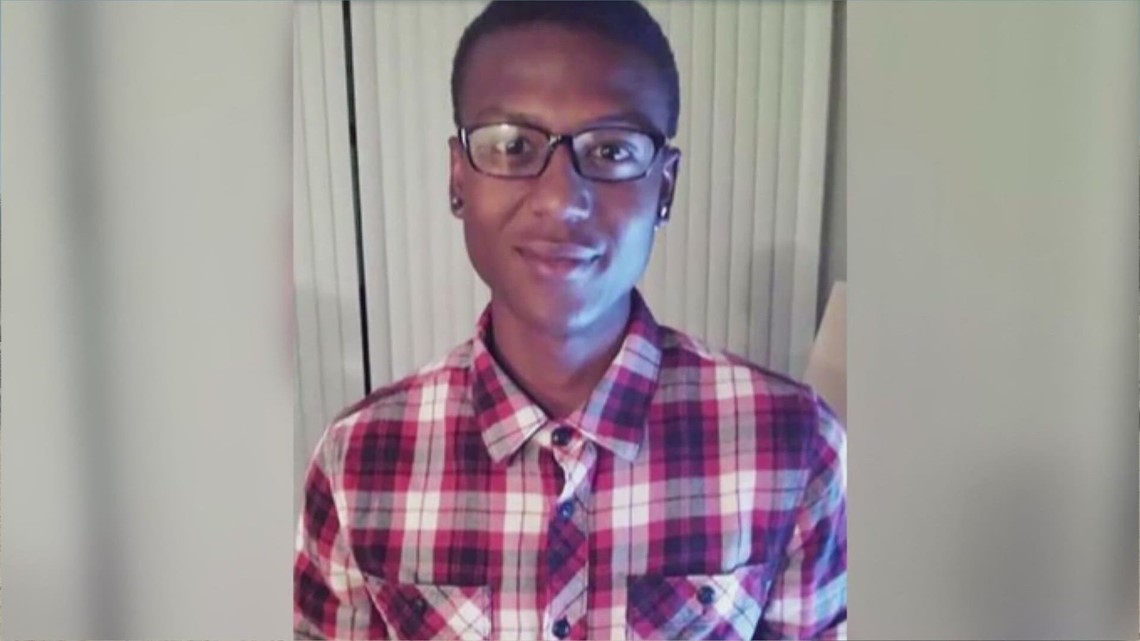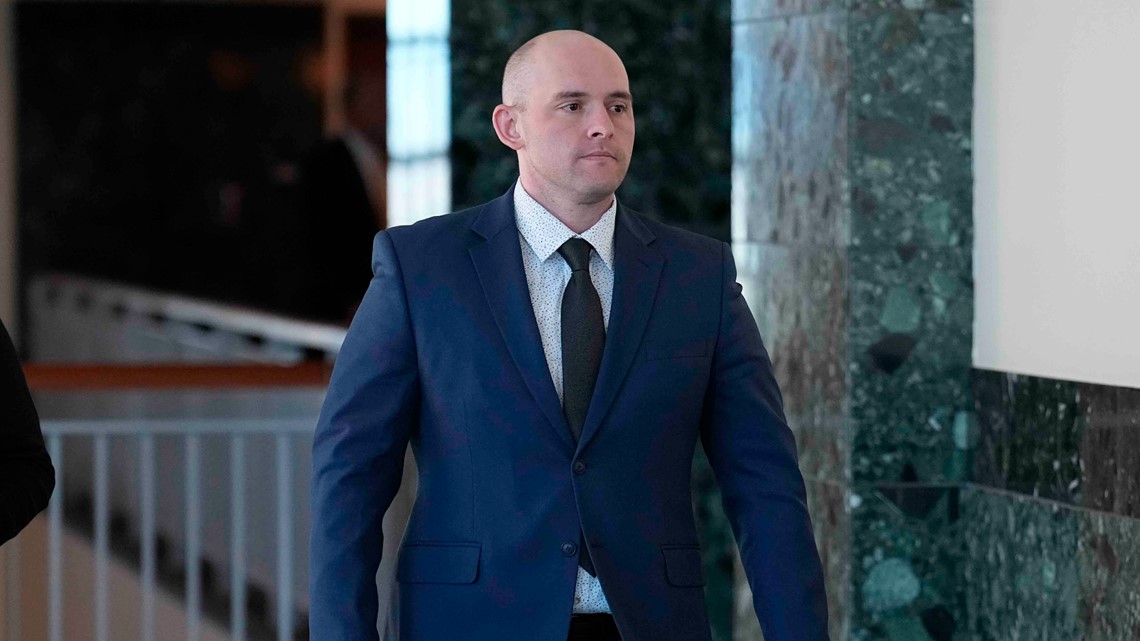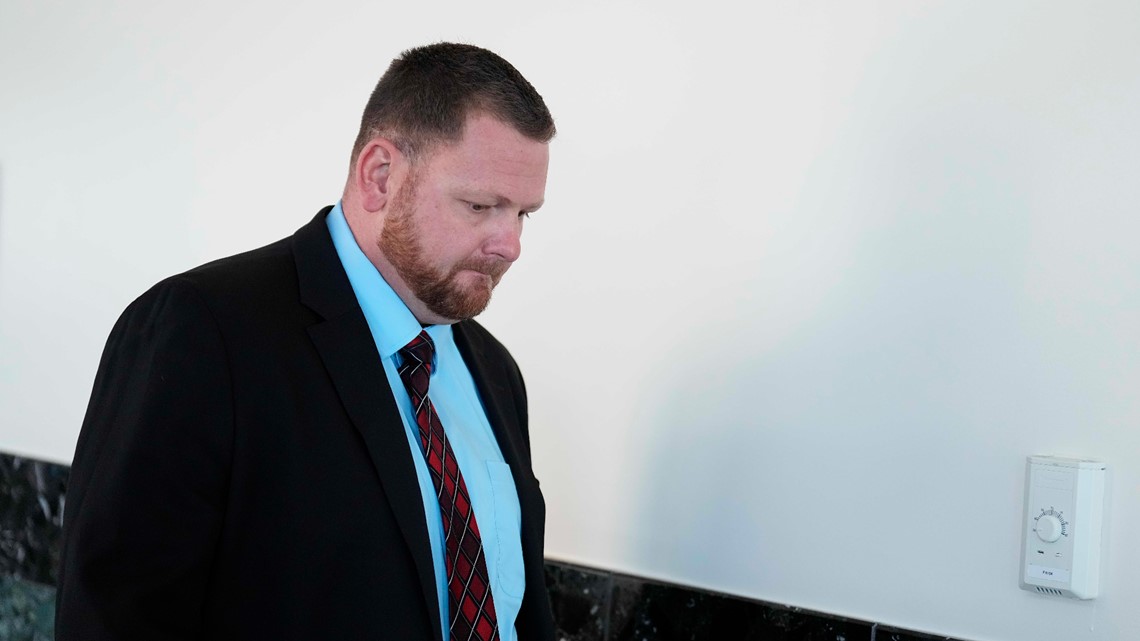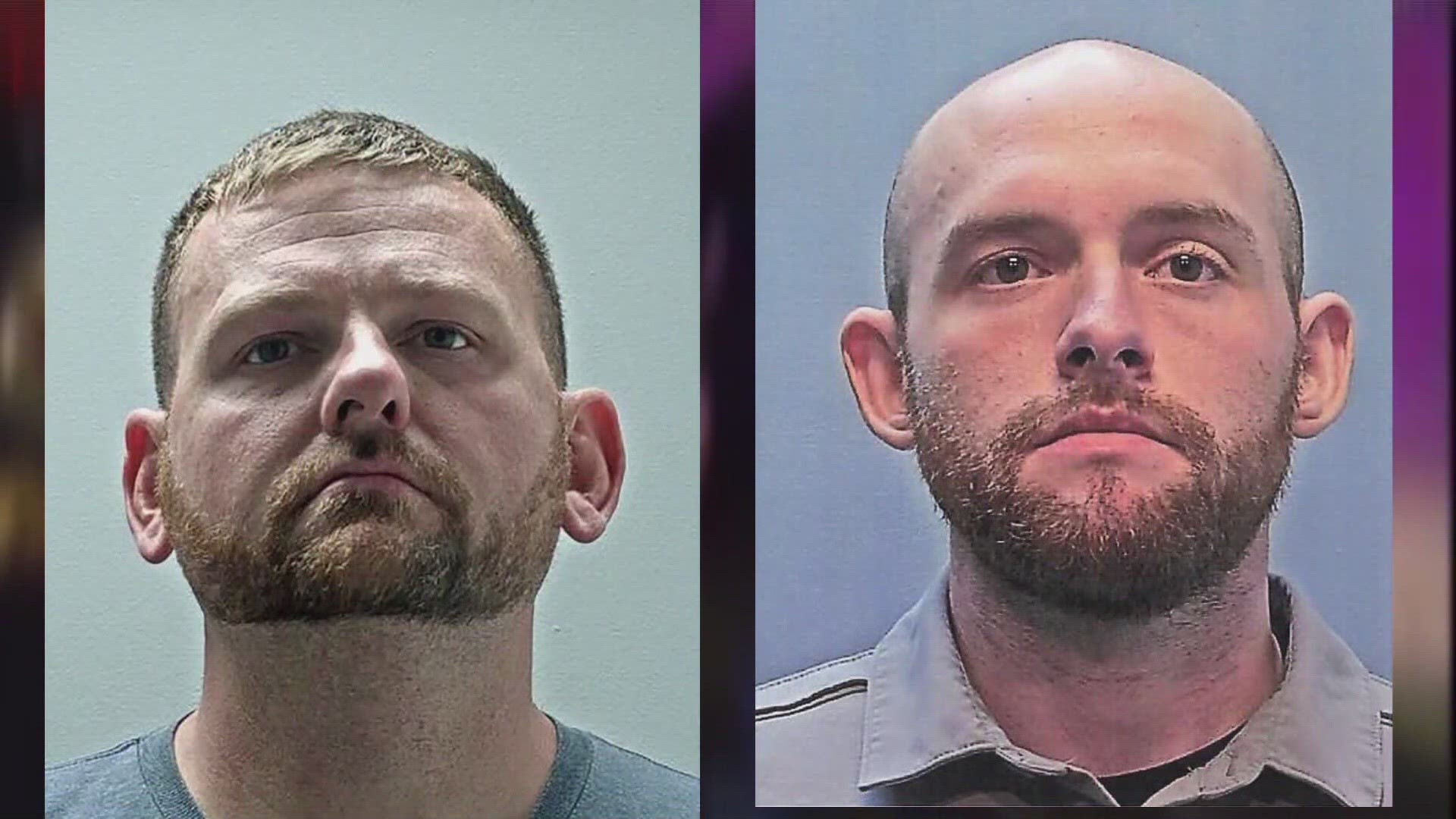AURORA, Colo. — A use of force and training expert who reviewed body-worn camera footage of the 2019 encounter between Aurora Police officers and Elijah McClain testified Friday about the repeated policy violations he believes were committed by officers.
Dr. Marc Brown told jurors over and over again that the actions of suspended Aurora officer Randy Roedema, 41, and former officer Jason Rosenblatt, 34, were "inconsistent" with the department's policies and directives he reviewed.
The two officers are among five people indicted in 2021 in connection with McClain's death. Both are charged with reckless manslaughter and second-degree assault.
A third officer and two paramedics were also indicted and will go to trial later this year.
McClain was first contacted on Aug. 24, 2019, after a teenage boy called 911 and relayed that he saw McClain wearing a coat and mask and acting "suspicious." Less than a minute after police arrived, McClain was taken to the ground and engaged in a struggle with Roedema, Rosenblatt and the third officer. During that struggle, McClain was placed in a carotid hold, which can cut off the oxygen supply to the brain.
Later that night, paramedics injected McClain with the sedative ketamine. His heart stopped and he later died.


Brown's testimony on Friday focused on the time McClain was on the ground before paramedics arrived. He spent the morning watching various body-worn camera videos and then explaining to jurors how, in his opinion, the actions of the officers violated policies and directives.
In one particular video, from near the beginning of the encounter, McClain is heard saying "I'm going to take my power back." Brown was asked, whether in his opinion, that amounted to "violent resistance."
"No sir," Brown replied.
"Why?" asked prosecutor John Bunge.
"Watching the body camera footage, watching his conduct, he didn’t offer any violent resistance, he didn't make any threats, he didn’t turn to square up, he didn’t swing the bag that had three ice teas in it, he didn’t attempt to strike with his cell phone or anything else," Brown explained. "He just told them he was going home and that he was walking home."
Under Aurora Police policy, "violent resistance" would allow officers to use a reasonable degree of force. On cross-examination, Brown conceded that if McClain had grabbed for an officer's gun— which the defense contends he did— the officers would have been allowed to use more force than they did.
"If an officer perceives someone grabbing for a gun is that a significant threat to an officer?" asked Reid Elkus, who represents Roedema.
"It's a significant threat to an officer because a firearm is deadly force," replied Brown. "If they're able to grab a firearm, they could grab that and turn it on them."
Once McClain was on the ground, Brown was asked if officers followed the department policy to de-escalate when "practical." He testified that he did not believe they did.
"During the restraint period when Mr. McClain was handcuffed, the struggle is essentially over," he said. "There was pain compliance, wrist compression. Officer Roedema, on camera, put his knee in his back."
After using a carotid hold maneuver, officers are required to monitor a suspect's condition. In this, case, based on the video he reviewed, Brown said that none of the officers did that. He said he never saw them check McClain's pulse or check for breathing. They're also required to check if the person is coherent by asking a person basic questions and checking to see if they can answer appropriately.
"In any of these videos— does any officer ever ask Elijah McClain his name?" asked Bunge.
"No sir," Brown replied.
Brown said that, from his view, the officers did not treat McClain's complaints about being unable to breathe as a medical emergency as required.
"He complained he couldn’t breathe at least, approximately, seven times,” Brown said.
He said the last thing he heard McClain say was, "Help me" and "I can't," but never finished the thought.
He acknowledged that the officers called medical, which was according to policy, but said they made no attempts to reposition McClain to help him breathe more easily. According to Brown's testimony, the officers also never told the paramedics about McClain's breathing complaints.
"My perception, they were talking [to the paramedics] about his [McClain's] quote-unquote superhuman strength— that he almost did a push-up with three of them on his back.”


The officers did place McClain on his side, in what's known as the recovery position, which is in accordance with policy; however, Brown noted that officers were putting pressure on McClain. Specifically, he said Roedema pressed his knee into McClain's rib and sternum area.
"During this point in the restraint period, based on my opinion, it looks like they’re hurting him at this point— keep in mind he’s handcuffed on the ground," he said.


Jurors also heard Friday from a crime scene investigator for Aurora Police who took photos of the scene and photos during McClain's autopsy. The last witness of the day was another Aurora officer who responded briefly to the scene after McClain was already handcuffed and on the ground.
Monday is Mother Cabrini Day in Colorado and the courts are closed. Testimony is expected to resume on Tuesday morning.
Jeremy Cooper and Peter Cichuniec, the two paramedics who responded to the call, are set for trial in November. They are each charged with reckless manslaughter and numerous counts of assault.
Another officer, Nathan Woodyard, who was the first to respond to the call about McClain, was also indicted on a charge of reckless manslaughter. His trial is set to begin in mid-October.
SUGGESTED VIDEOS: Elijah McClain death

